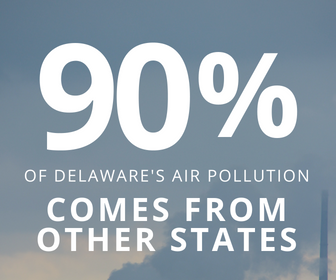Governor John Carney published an op-ed about progress made in Delaware to get more Delawareans health insurance coverage, and reminds Delawareans the ACA health insurance marketplace enrollment period ends December 15.
Ten years ago, before President Obama signed the Affordable Care Act into law, it was legal for insurance companies to deny Delawareans health coverage because they had diabetes or another pre-existing condition.
Across our state, more than 11 percent of Delawareans went without insurance. They skipped preventive visits to their doctors. And they accepted that a health crisis could also mean losing all their savings, or worse.
In the years since, we have made substantial progress in reducing the number of uninsured Delawareans.
With federal assistance, we have expanded our Medicaid program to provide quality health insurance coverage for Delaware families who need it the most. And more than 22,000 Delawareans have signed up for a health plan under the ACA health insurance marketplace.
Since implementation of the ACA, we have nearly cut our uninsured population in half in Delaware. And here’s some good news this year: rates on the ACA health insurance marketplace are down almost 20 percent, which we hope will encourage more Delawareans to get covered.
This is because, working with the General Assembly, we passed House Bill 193 into law, creating a reinsurance program which helped drive down the cost of coverage on the ACA marketplace.
In addition, some people will qualify for premium assistance, making the plans even more affordable.
That’s a really big deal. And as we near this year’s deadline of open enrollment on the ACA health insurance marketplace, we want to make sure even more Delawareans get covered.
For Delawareans who don’t have coverage through their employers, and for those who already have insurance through the ACA marketplace, I want to remind you and urge you to shop and compare ACA marketplace plans.
If you don’t have coverage, you need to act quickly. Enrollment on the ACA marketplace is open through December 15. Visit ChooseHealthDE.com to review your options and enroll at healthcare.gov.
If you’re not sure if can afford coverage on the marketplace, Westside Family Healthcare has health care navigators to help walk you through your options, including whether you and your family are eligible for financial assistance.
To make an appointment with a marketplace navigator, call Westside Family Healthcare at 302-472-8655 in New Castle County or 302-678-2205 in Kent and Sussex counties. Or visit ChooseHealthDE.com.
We know that we still have a lot of hard work to make health care more affordable for Delawareans and Delaware families. That’s why – working with members of the General Assembly – we created the new reinsurance program.
And that’s why we are working with health care providers on an initiative to bring transparency to health care prices and give Delaware consumers more information when they are making decision on where to get care.
Our overall goals are to reduce health care costs costs, and improve affordability and health outcomes for Delawareans across our state.
Our overall goals are to reduce health care costs and to improve affordability and health outcomes for Delawareans across our state. To do this, we need to build on the foundation of the ACA until all Delawareans are able to get the quality health care they deserve.
John Carney is the 74th Governor of the State of Delaware.

